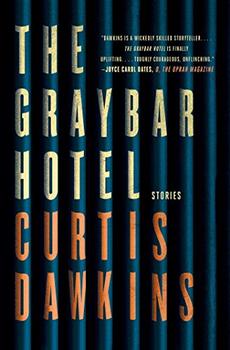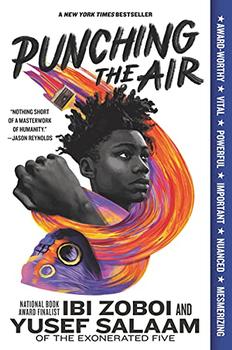Summary | Excerpt | Reviews | Beyond the book | Read-Alikes | Genres & Themes | Author Bio

Stories
by Curtis DawkinsWe – those of us on the outside – are lucky. So very lucky. We get to experience life – all of it, including every insipid moment. The prisoner in the short story, "The Human Number" is not so fortunate. Sensory deprivation has hit so hard that he calls random "human [phone] numbers," often just to be steeped in the daily minutiae of outside life. "Countless layers of sound make up the world, and I hear it all: voices; vacuuming; traffic through an open window; the hum of washers, dryers, refrigerators, all so slight the sound is barely perceptible," explains the narrator. He is one of many in this sensitive, achingly observed and absolutely brilliant collection of short stories by somebody in the know: The author, Curtis Dawkins, is serving life in prison with no chance of parole.
In "Depakote Mo", a prisoner tries to feed his tobacco addiction in the face of an increasing clampdown. He manages to get wads of it from prison members who don't smoke and tries to pay off his debt by illicitly running a business that makes tattoos and hand-painted cards. Given the long list of materials banned in prison, this requires much thinking outside the box. When the one contraption needed to keep him going is taken away from him, and his makeshift "business cards" are knocked down on the cell floor, he scrambles to pick them up, wishing "I could just as easily put my life back together."
The collection is suffused with deep strains of regret and also hope, the only currency to live by even when there really isn't much of it to go around. In the opening story, "County," the narrator watches the television show, The Price is Right: "I looked forward to seeing Bob Barker up there, and hearing Rod Roddy calling people to come on down. For an hour a day I could live in a world full of lights and color, noise and smiling women gracefully highlighting things with the near-touch of their hands. And hope. The hope for a good outcome kept me transfixed." Yet the inmates are grounded enough to realize that sometimes tired old cliches just don't work. When a prisoner breaks down, his roommate wonders: "What more could we say to cheer him up that we hadn't already tried to say in County: that people make mistakes; you can't look back; there's a reason for everything; life's a bitch sometimes."
Predictably the long shadow of a crime perpetrated never goes away. Those lucky enough to make it outside face a different kind of purgatory, hit by reminders of all the lost chances, forever dogged by the "ex-con" label. "He was at the beginning again in the middle of his life, and all the good parts appeared to be over: the kids growing up, climbing the career ladder, family trips everyone would always remember," writes Dawkins in "Leche Quemada." "Creating those memories must be the 'good' part of life, yet he'd spent all those golden years behind bars. He'd known it then; at night, waves of pain radiated out from the life he was missing, rocking him with gusts of intense sadness."
If I were to have one quibble, it might be that Dawkins skirts the issue of race entirely in his collection, surely a golden missed opportunity at precious insights. His biggest gift is to remind the reader about our shared humanity with the narrators in his collection. These inmates are not monsters, he reminds us, but human beings with complex personalities just like us. Nowhere does he hit this home stronger than in "A Human Number," where people on the other side of the prisoners' phones are just as eager for human contact. "So am I," responds a man when the inmate calls and says he's bored, "I don't know what to do with myself since I retired." There is loneliness on either side of those prison walls, we know, but it goes without saying that the prisoner would be more than willing to trade one kind of misery for the other.
Despite the dark material, The Graybar Hotel never spirals into the depths of despair. The sharp writing and engaging narrators elevate the collection into an intelligent and eagle-eyed look at a part of the world most of us hope to never see.
![]() This review was originally published in The BookBrowse Review in July 2017, and has been updated for the
May 2018 edition.
Click here to go to this issue.
This review was originally published in The BookBrowse Review in July 2017, and has been updated for the
May 2018 edition.
Click here to go to this issue.

If you liked The Graybar Hotel, try these:

by Adam Plantinga
Published 2024
When a high-security prison fails, a down-on-his luck cop and the governor's daughter are going to have to team up if they're going to escape in this "jaw-dropping, authentic, and absolutely gripping" (Harlan Coben, #1 New York Times bestselling author) debut thriller from Adam Plantinga, whose first nonfiction book Lee Child praised as "truly ...

by Yusef Salaam, Ibi Zoboi
Published 2021
From award-winning, bestselling author Ibi Zoboi and prison reform activist Yusef Salaam of the Exonerated Five comes a powerful YA novel in verse about a boy who is wrongfully incarcerated. Perfect for fans of Jason Reynolds, Walter Dean Myers, and Elizabeth Acevedo.
Your guide toexceptional books
BookBrowse seeks out and recommends the best in contemporary fiction and nonfiction—books that not only engage and entertain but also deepen our understanding of ourselves and the world around us.